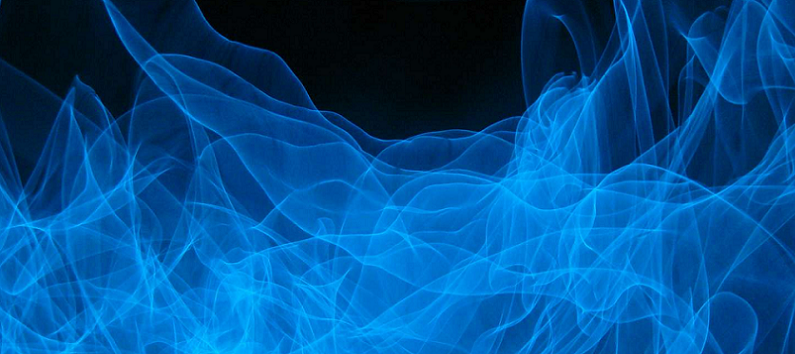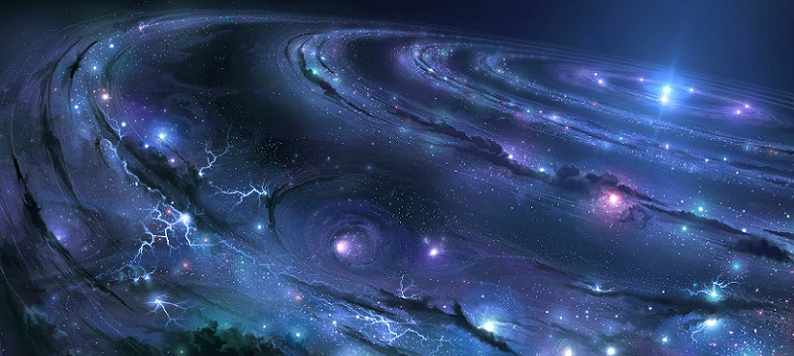
From the grounding solidity of Earth to the transformative fury of Fire, the soothing flow of Water, and the free spirit of Air, the classical elements have been deeply intertwined in human history, shaping our understanding of the world and ourselves. However, beyond these four familiar elements, there exists another, often overlooked yet profoundly influential: the Aether. Known as the Fifth Element, Quintessence, or Akasha, this mystical substance has intrigued thinkers and spiritual seekers across centuries and cultures. Its elusive nature often associates it with the divine, the ethereal, and the boundless cosmos.
Contents
- Introduction to the Elements and Aether
- Historical Understanding of the Aether
- Spiritual Significance of the Aether
- The Aether in Modern Metaphysical Perspectives
- Practical Applications of Aether in Daily Life
- References
Introduction to the Elements and Aether
Throughout the ages, civilizations have sought to comprehend the world around them, searching for a way to classify and define its diverse elements. In their quest for understanding, many cultures identified four fundamental elements: Earth, Water, Fire, and Air. These elements represented not just physical phenomena, but the very cornerstones of existence, shaping human philosophy, religion, and science.
Brief Overview of the Four Classical Elements
The four classical elements were first proposed by ancient Greek philosophers, most notably Empedocles, who asserted that all matter was composed of these four constituents. Earth was thought to symbolize stability and solidity, water signified fluidity and adaptability, fire represented transformation and energy, and air was associated with freedom and communication. These elements were not merely physical properties, but spiritual symbols that reflected the different states of matter and human temperament.
Introduction to the Concept of Aether as the Fifth Element
However, beyond these four basic elements, there was another. A fifth element, often less tangible yet profoundly significant: the Aether. Known by many names such as Quintessence or Akasha, the Aether was believed to represent the elusive, the ethereal, and the divine. Unlike the other four elements, which connected to earthly and human experiences, Aether was thought to be the substance of the heavens and cosmos, permeating all space and linking the terrestrial to the celestial.
Importance of Aether in Different Cultures and Spiritual Traditions
The concept of Aether, while varying across cultures and time periods, has consistently held a place of reverence and mystique in spiritual traditions. From the ancient Greeks who perceived it as the pure essence that the gods breathed, to Eastern philosophies where it was seen as the fundamental fabric of life and consciousness, the Aether is more than just an element. It is a bridge between the physical and the spiritual, the known and the unknown, the human and the divine [1].

Historical Understanding of the Aether
The concept of Aether has a rich and varied history, permeating the thoughts and philosophies of different civilizations throughout time. Its mystique has captivated thinkers, leading to diverse interpretations that reflect the sociocultural and spiritual paradigms of their times.
The Ancient Greeks and the Quintessence
The roots of the Aether can be traced back to ancient Greece, where it was revered as the Quintessence, the fifth element that transcended the terrestrial bounds of Earth, Water, Fire, and Air [2].
Philosophical Interpretations of Aether
In ancient Greek philosophy, Aether was considered the purest form of matter, the substance that made up the celestial realm and bodies. Aristotle, a prominent Greek philosopher, suggested that Aether was the celestial element that moved in perfect eternal circles, unlike the linear motion of the other four elements. This unique motion reflected the perceived divine perfection of the celestial bodies and the eternal nature of the gods themselves.
Connection to Greek Mythology
In Greek mythology, Aether was also personified as a deity, the god of the upper sky, light, and the heavenly air that the gods breathed. This personification not only highlights the divine status of Aether but also further symbolizes its ethereal and life-giving qualities.
Aether in Eastern Traditions
Parallel to the Greek concept of Aether, Eastern philosophies too nurtured the idea of a fifth element, often more spiritual and cosmic in its implications.
Hinduism and the Akasha
In ancient Indian philosophy, Aether was synonymous with “Akasha,” a Sanskrit term meaning “sky” or “space.” Akasha was considered the spiritual element, the ether that pervaded all existence. It was seen as the field where vibrational phenomena occurred, enabling sound, the vehicle of the sacred Vedic hymns, to exist. In this context, Aether took on a sacred significance, symbolizing the space where divine sound and energy reverberated.
Buddhism and the Void
In Buddhist cosmology, a comparable concept is found in the notion of “Sunyata” or “Void,” which refers to a state of emptiness or formless reality that transcends the physical world. While not identical to the concept of Aether, it similarly underscores the existence of a transcendent reality that surpasses the tangible four elements.
The Renaissance and Alchemical Understanding of Aether
Fast-forward to the Renaissance era, the concept of Aether was adopted and further developed by alchemists seeking to uncover the mysteries of existence [3].
Aether as the Philosophers’ Stone
During the Renaissance, Aether was associated with the pursuit of the Philosopher’s Stone, a mythical substance believed to hold the power of transmutation and eternal life. Alchemists viewed Aether as the quintessential element, the divine substance capable of instigating profound transformations.
Role in Alchemical Transformation
Aether was believed to play a pivotal role in alchemical transformations. Alchemists theorized that it was the immaterial spirit enabling the transmutation of base metals into gold, a symbolic process representing the human journey towards spiritual perfection and enlightenment. This interpretation placed Aether at the heart of the inner spiritual transformation, a theme that reverberates even in modern metaphysical perspectives.

Spiritual Significance of the Aether
Moving beyond the realms of physicality and history, the concept of Aether carries profound spiritual implications. Across cultures and epochs, it has been perceived as a spiritual life force, a medium of consciousness, and a gateway to transcendental realities.
Aether as the Life Force or Prana
Many cultures and spiritual systems have conceived Aether as the vital life force or energy that infuses the universe.
The Concept of Chi in Chinese Philosophy
In traditional Chinese philosophy, a concept similar to Aether is the idea of “Qi” or “Chi”. This concept is considered as the vital force or energy flowing through everything, uniting all entities in the universe. The health and wellbeing of a person are thought to depend on the harmonious flow of Qi within their body, similar to how Aether was believed to permeate all space and bring about harmony in the cosmos.
Aether as Universal Life Energy
In a more universal context, Aether is often seen as a cosmic life force, a spiritual energy that permeates the universe. Like a divine thread, it is thought to weave together all forms of life, maintaining a subtle yet profound interconnectedness. It suggests that we are not just physical beings, but also spiritual entities intricately woven into the cosmic tapestry.
Aether in Esoteric and Occult Traditions
The importance of Aether has been highlighted in various esoteric and occult traditions, which consider it as a conduit to higher wisdom and spiritual enlightenment [4].
Theosophy and the Akashic Records
Theosophy, a spiritual movement originating in the late 19th century, refers to “Akasha” to denote a compendium of mystical knowledge. This Akashic Record, written in the Aether, is thought to hold all information about human experience and the history of the cosmos. It is believed that through spiritual practices, one can access this ethereal database to gain wisdom, insight, and guidance.
Aether in Hermetic Philosophy and Rosicrucianism
Hermetic philosophy and Rosicrucianism, both esoteric traditions, have considered mastery over Aether as a spiritual goal. It is seen as a medium for achieving divine gnosis or spiritual enlightenment, transcending physical limitations to attain a state of higher awareness and wisdom.
Aether and Consciousness
One of the most profound aspects of Aether’s spiritual significance is its intimate association with consciousness.
The Role of Aether in Spiritual Enlightenment
Various spiritual traditions associate Aether with the process of enlightenment. This fifth element, being of the divine, is believed to elevate human consciousness to higher realms. This idea suggests a transformative potential of Aether, presenting it as a pathway to spiritual awakening and self-realization.
Connection Between Aether and Higher States of Consciousness
Aether has been linked to higher states of consciousness and mystical experiences. Such states often involve a sense of oneness with the universe or a direct perception of ultimate reality. It is thought that by attuning to the subtle vibrations of Aether, one can access these profound states, fostering spiritual growth and personal transformation.

The Aether in Modern Metaphysical Perspectives
As we journey into the present day, we find that the Aether’s timeless allure persists. Its significance has been embraced and adapted in modern metaphysical perspectives, continuing to shape our understanding of the universe and our place within it.
Aether and Quantum Physics
Modern quantum physics has proposed theories that echo ancient notions of the Aether, offering intriguing scientific parallels to this timeless concept [5].
Quantum Field Theory and the Quantum Vacuum
Quantum field theory, a fundamental theory in physics, proposes that all particles are excitations in underlying fields. This has led to the concept of the “quantum vacuum,” a state of lowest energy where no particles exist, yet it’s teeming with potential particles and energies. While not identical, this quantum vacuum bears some similarities to the concept of the Aether, as an underlying, all-pervading medium.
Dark Energy and the Expansion of the Universe
Dark energy, a mysterious form of energy that permeates all of space and accelerates the expansion of the universe, also carries echoes of the Aether. Its pervasive nature and role in cosmic evolution have evoked comparisons with the Aether, offering a modern scientific metaphor for this ancient element.
Aether and Consciousness Studies
The Aether also finds relevance in the evolving field of consciousness studies, where it resonates with ideas about the interconnectedness of consciousness and reality.
Aether as a Field of Consciousness
Some contemporary perspectives view Aether as a kind of consciousness field that connects all minds and enables information exchange beyond physical boundaries. This view bears semblance to spiritual perspectives where Aether serves as the medium of consciousness, binding the cosmos together.
Role in Paranormal Phenomena
Within parapsychology, a field studying paranormal phenomena, the Aether has been invoked to explain phenomena like telepathy and remote viewing. It’s thought to serve as the carrier of information between individuals, bypassing conventional sensory channels, thus echoing its traditional role as a bridge between the physical and ethereal realms.
Aether in Modern Spirituality and Energy Healing
In modern spirituality and energy healing practices, Aether’s spiritual significance continues to resonate, providing a framework for personal growth and healing.
Aether and Energy Healing Practices
Many energy healing practices, such as Reiki and Qi Gong, involve the channeling or manipulating of a universal life force energy, akin to the Aether. Practitioners often perceive this energy as a subtle, yet powerful, element that can promote healing, balance, and spiritual development.
Aether in Meditation and Mindfulness Practices
Meditation and mindfulness practices also carry implications of the Aether. By cultivating inner silence and presence, practitioners are thought to align more closely with the Aether, fostering a deeper sense of connection, wholeness, and spiritual awareness.

Practical Applications of Aether in Daily Life
While the concept of the Aether may seem abstract or esoteric, it has practical implications that can be integrated into daily life. By embracing the principles symbolized by the Aether, we can foster greater balance, harmony, and awareness in our lives.
Embracing Interconnectedness
As the Aether symbolizes the vital life force pervading the universe, acknowledging its presence is a reminder of our interconnectedness with all things [6].
Cultivating Empathy and Compassion
Understanding that we’re all part of a grand cosmic web can foster empathy and compassion for others. As we recognize the Aether within us, we see it in others as well, prompting us to treat others with kindness and understanding.
Responsible Environmental Stewardship
Recognizing our interconnectedness also has environmental implications. If we accept that the Aether permeates everything, then we understand that harm to the environment is harm to ourselves. This perspective can motivate us to act as responsible stewards of the Earth, encouraging sustainable practices that respect and protect our shared home.
Pursuit of Personal Growth and Spiritual Development
The Aether’s association with higher consciousness and spiritual enlightenment can guide our personal growth and spiritual development.
Meditation and Mindfulness Practices
Engaging in meditation and mindfulness practices can help us tap into the Aether’s transformative potential. As we cultivate inner silence, presence, and awareness, we align more closely with the Aether, fostering a deeper sense of connection and spiritual awareness.
Energy Healing and Wellness Practices
Embracing practices such as yoga, Reiki, and Qi Gong, which involve the channeling or manipulating of a life force energy akin to the Aether, can promote physical health, emotional balance, and spiritual wellbeing.
Cultivating Higher Wisdom and Understanding
The Aether’s role as a reservoir of universal wisdom can guide us towards greater understanding and insight.
Lifelong Learning and Intellectual Curiosity
The idea of the Aether as a repository of cosmic wisdom encourages lifelong learning and intellectual curiosity. Just as the ancients sought to understand the Aether, we can nurture a similar quest for knowledge and understanding in our lives.
Intuition and Inner Wisdom
By tuning into the Aether, we can also cultivate our intuition and inner wisdom. This can serve as a guiding force in our lives, helping us navigate our path with greater clarity and confidence.
References
[1] The Five Element Symbols of Fire, Water, Air, Earth, Spirit
[2] Aether Definition in Alchemy and Science
[3] The Five Elements: Ether in Ayurveda
[4] Spiritualism and Electromagnetism
[5] Science and the Existence of Ether
[6] Aether






